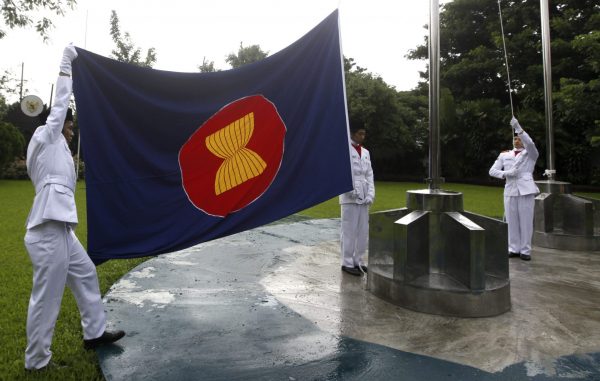These under-appreciated facts are important to the analysis of international diplomacy and its conduct in the chaos and uncertainty that dominate today’s global outlook.
In the 1960s, Swedish economist Gunnar Myrdal identified Southeast Asia as a region stuck in a vicious cycle of poverty and instability for many years to come. Myrdal’s prognostication for the region was spectacularly wrong, though it might have seemed a plausible story about the state of Southeast Asia’s emergent nations at that time.
What changed was how the Southeast Asian economy turned around. Not all at once or at the same pace, but in a common direction at around the same time. Without the redirection of economic policies across the region, the innovation and success of ASEAN would hardly have become the lynchpin of East Asian political arrangements that it is today.
Regional cooperation arrangements such as APEC, the ASEAN plus frameworks or the emergent Regional Comprehensive Economic Partnership (RCEP) are not hardwired institutionally into ASEAN. But they were born of the same parentage and are genetically inseparable from the principles and practices that sustain ASEAN’s success economically and politically.
The diversity in stages of development, economic endowments, institutions, culture, religion and ethnicity may be an enduring source of regional political fragility. But it is also a fountain of strength economically, offering opportunity for specialisation that multiplies gains from trade for growth.
Growing economic security attenuated the politics of ASEAN and Asian diversity and ensured its reach and influence — though at times it may have appeared tenuous. It will be economic security and success that underpins Asia’s political sway and effectiveness in the face of the great political uncertainties that confront the world today.
The APEC Bogor Goals of free and open trade by 2020, adopted in 1994, embodied a strategic commitment to the core pillars of economic openness. While completely free and open trade remains an aspiration in the region, APEC’s continued commitment to openness has delivered substantial benefits to its members.
The global order has changed in ways that threaten the shared prosperity and security promoted by Asia’s economic cooperation arrangements such as ASEAN, APEC and the East Asian arrangements. The change is a product of big shifts in the structure of global power, with the rise of China and other emerging economies now a cause of deep disquiet within the established powers.
The response to this and a withdrawal from globalisation are reflected in the surge in protectionism and retreat from multilateralism. This is exemplified in Europe through Brexit, by the Trump administration’s ‘America First’ policies on trade and investment, in China’s reciprocated response to US policies, and a raft of negative regional and bilateral actions. Recent actions in the Asia Pacific — from the US–China trade and technology war and tensions between South Korea and Japan — make it clear that something is broken.
These conflicts and trade-destroying strategies completely ignore or circumvent the established rules of international trade. Those rules have been in place since Bretton Woods Institutions were created and were strengthened when the World Trade Organization was created in 1995. While there are big gaps in the rules and new issues to be dealt with, strategies that effectively tear down the established rules only corrode the open multilateral order.
These developments are undermining trade and investment flows, disrupting supply chains, and causing long-term damage to the confidence and predictability that underpin cross-border commerce. The downturn in global foreign direct investment (dropping 23 per cent in 2017 and 18 per cent in 2018) illustrates this impact.
For Southeast Asia — a region that has developed because of trade and where cross-border trade is heavily tethered to cross-border investment — these developments are critical and need an urgent and concerted response.
The global economic regime is in a time of crisis. Asia’s central interest is to frame dialogue and an action plan that deals with this crisis directly. Tensions between protecting the global economic system and correcting the imbalances in that system must be resolved.
RCEP is vital in shaping Asia and ASEAN’s response to its new security circumstances. It encompasses China and India, the region’s two big emerging powers. Although India was slow to grasp the strategic significance of RCEP — like ASEAN, Japan and other countries, it has now elevated early conclusion of RCEP as a foundational element in its quest for a new multipolar global order and embrace of Asia’s dynamism. Through RCEP’s negotiation, when key ASEAN members leaned towards leaving India behind, China and Japan did not waver from the strategic importance of keeping India in.
RCEP is an ASEAN conception of the regional order, not a Chinese initiative. Like other ASEAN economic arrangements, RCEP is not merely another free trade agreement — it is an economic cooperation arrangement. Like all ASEAN-centred economic cooperation arrangements in Asia — and APEC which includes the United States — such arrangements are founded on political cooperation and underpin political security, as a collateral but primary international public good.
Mari Pangestu is Professor of Economics at the University of Indonesia, head of the Indonesian Bureau of Economic Research and a former Indonesian Minister of Trade and Tourism. Peter Drysdale is Emeritus Professor of Economics, Head of the Asian Bureau of Economic Research and Editor-in-Chief of East Asia Forum in the Crawford School of Public Policy at the Australian National University.

